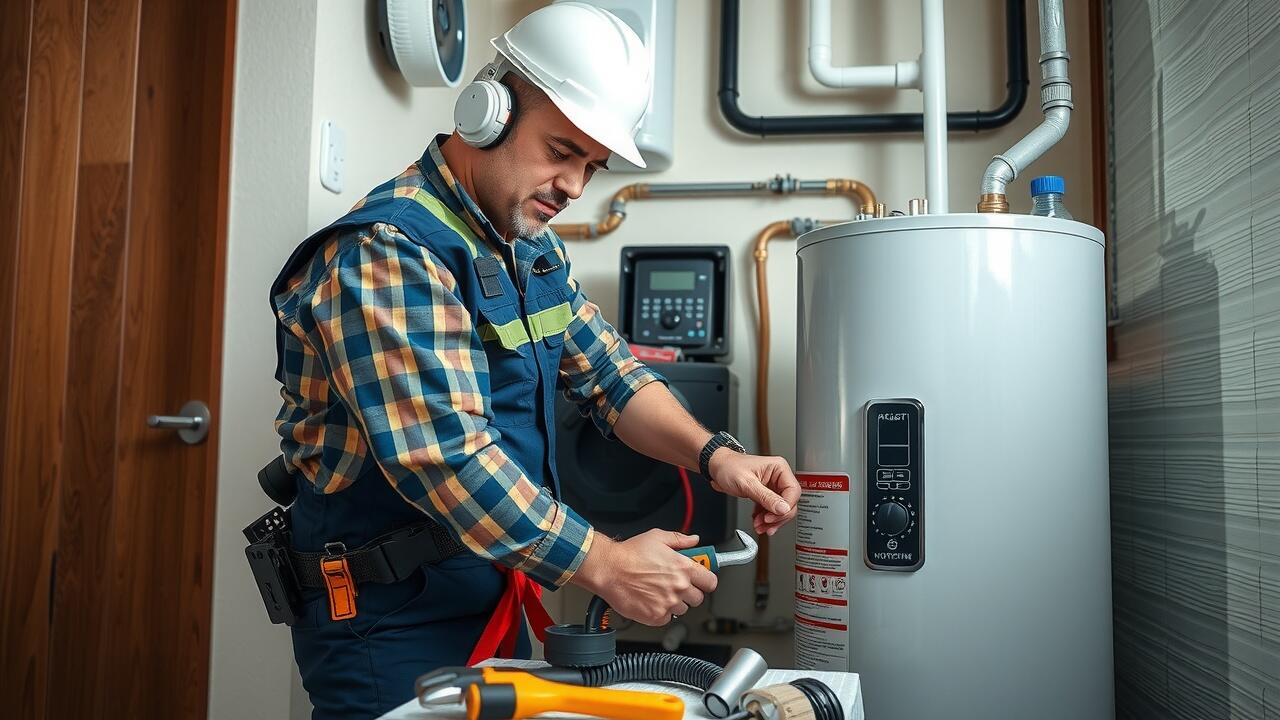Energy Efficiency and Life Expectancy
Energy efficiency plays a crucial role in determining the life expectancy of a water heater. Models designed to be energy efficient often have advanced features that help reduce wear and tear on components. These innovations lead to less strain during operation, contributing to a longer lifespan overall. Regular maintenance is also more effective when efficiency is prioritized, allowing users to spot potential issues early and prolong their unit’s usability.
When considering water heater installation and repair, energy efficiency should be a top priority. Selecting a high-efficiency model can lead to lower utility bills, making the long-term investment more appealing. Additionally, choosing an energy-efficient unit can positively impact your environmental footprint, since these systems typically consume less power. Therefore, balancing energy efficiency with durability is essential for maximizing both performance and longevity.
How Efficiency Affects Durability
The efficiency of a water heater plays a crucial role in determining its overall durability and lifespan. Higher efficiency models are often designed with better materials and advanced technology, which can reduce stress on components during operation. This design consideration may lead to fewer breakdowns and longer intervals between maintenance. Inefficient units tend to work harder to heat water, resulting in greater wear and tear on parts over time.
When investing in a water heater, considering efficiency can significantly impact long-term costs. While high-efficiency options often carry a larger upfront price tag, their reduced energy consumption can lower utility bills. Additionally, water heater installation and repair can be more frequent with less efficient systems, further adding to ongoing expenses. Choosing a model with a good efficiency rating can yield savings over the life of the appliance.
Replacement Considerations
When evaluating the replacement of a water heater, several factors come into play. Consider the age of the existing unit; heaters typically operate efficiently for about 8 to 12 years, depending on the model and maintenance. Frequent repairs may also signal that it’s time for an upgrade, particularly if those repairs are becoming more costly or disruptive. Assessing your household’s current and future hot water needs is essential. Larger families or increased demand can justify the investment in a more reliable and higher-capacity unit.
Cost plays a significant role in the decision-making process. While some may lean toward a cheaper model, it is important to consider the long-term energy savings associated with more efficient options. Water heater installation and repair costs should factor into the overall budget. Even seemingly small differences in efficiency can lead to substantial savings over time. Evaluating warranties and potential maintenance requirements can also influence the overall lifespan and reliability of the new unit.
When to Replace Your Water Heater
Determining when to replace your water heater is essential for maintaining efficiency and comfort in your home. Common indicators include inconsistent water temperature, noticeable rust or corrosion on the tank, and unusual noises emanating from the unit. Additionally, if you find that your water heater is over ten years old, it may be more cost-effective to consider replacement rather than facing frequent repairs.
Regular maintenance can help extend the lifespan of your water heater, but there comes a point when repair costs outweigh the benefits. A significant leak or the inability to heat water effectively are strong signs that it’s time for a new unit. Before making a decision, consult with a professional who specializes in water heater installation and repair to assess your current system and discuss your options.
Cost Factors Associated with Water Heater Longevity
The cost of a water heater significantly influences its overall longevity. High-quality models often come with a higher price tag, but they may offer more durable components and better warranties. Investing in a reliable unit can lead to fewer repairs and extended use, making it a cost-effective choice in the long run. Regular maintenance can also prolong the life of a water heater, although it entails additional expenses that homeowners should consider.
Water heater installation and repair costs also play a critical role in the decision-making process. Professional installation can ensure the unit operates efficiently from the beginning, helping to avoid potential issues that come from improper setup. It’s essential to budget for both the initial purchase and any potential repair work in the future to maintain the unit’s longevity. Proper planning can mitigate unexpected expenses while maximizing the water heater’s functional lifespan.
Balancing Initial Investment and Lifespan
When considering a water heater, it is essential to weigh the initial investment against its expected lifespan. Higher-end models may come with greater upfront costs, but they often provide better energy efficiency and longer durability. This can translate to savings in energy bills over the years, making the initial expense worthwhile. A reliable and efficient unit reduces the likelihood of frequent repairs, providing peace of mind and consistent hot water supply.
Evaluating the cost factors associated with water heater longevity involves not only the purchase price but also water heater installation and repair expenses. Cheaper units may seem appealing, but they often require more frequent maintenance and eventual replacement. Investing in a quality water heater can lead to a lower total cost of ownership over time. Homeowners should carefully consider how much they are willing to spend initially and how this choice might affect their finances in the long run.
FAQS
What is the average life expectancy of a water heater?
The average life expectancy of a water heater is typically between 8 to 12 years, although some models can last longer with proper maintenance.
How can I determine if my water heater needs to be replaced?
Signs that you may need to replace your water heater include rust or leaks, inconsistent water temperature, strange noises, and discolored water.
Does the type of water heater affect its lifespan?
Yes, different types of water heaters have varying life expectancies. For example, conventional tank water heaters generally last about 8 to 12 years, while tankless water heaters can last up to 20 years or more.
What maintenance can I perform to extend the life of my water heater?
Regular maintenance, such as flushing the tank to remove sediment, checking the anode rod, and ensuring proper insulation, can help extend the life of your water heater.
How does energy efficiency impact the lifespan of a water heater?
Energy-efficient water heaters are often designed with better materials and technologies, which can contribute to a longer lifespan compared to less efficient models.

